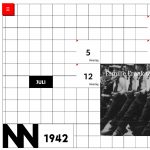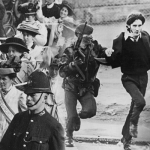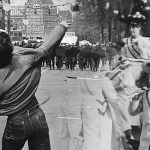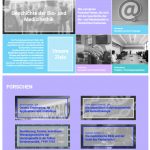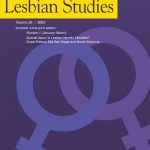 Special Issue Journal of Lesbian Studies (Web); Edited by Finn Mackay and Nikki Hayfield (Bristol)
Special Issue Journal of Lesbian Studies (Web); Edited by Finn Mackay and Nikki Hayfield (Bristol)
Proposals by: 15.04.2022
The Journal of Lesbian Studies is inviting proposals for the theme of solidarity. It seeks to address the question: What does „solidarity“ mean to, and for, lesbians and wider LGBTQ+ communities? The editors welcome papers from a wide range of disciplines.
What does „solidarity“ mean to, and for, lesbians and wider LGBTQ+ communities? Throughout the global covid pandemic, what has been the role of lesbians specifically in mutual aid groups and networks of care? In countries with aging populations, how is solidarity fostered across generations of lesbians and what allyship and activist organising exists to provide care and sociality for lesbian elders in our communities? Black power and anti-racism movements have become more visible via the Black Lives Matter movement; women’s rights movements have moved further into the frame of public reference via the global MeToo movement; how is solidarity expressed in lesbian communities or activist organising across the social fractures of racism, classism, transphobia and disability discrimination for example? What does the current context in your locality mean for the potential, shape, visibility, impact or appeal of solidarity within lesbian groups and with and between other groups of marginalised sexualities and genders?
The editors acknowledge that they pose questions on solidarity at a time of backlash against the gains of the LGBTQ+ social justice movement, and particularly the increased visibility of trans rights movements; sometimes this backlash appears to include fractures within LGBTQ+ communities. The editors also welcome contributions that engage with this context. They seek a wide-ranging set of contributions from multiple disciplines and hope to represent a diversity of perspectives. The editors are committed to transgender inclusion and centering the voices of Black and global majority scholars and activists and non-U.S. thinkers. They also welcome considerations of this question from multiple historical perspectives. Additional suggestions for topics that authors may wish to contribute include, but are not limited to, the topics listed here (see more details below):
- Solidarity between lesbians and wider LGBTQ+ community groups
- Sexuality and solidarity between bisexual, pansexual, queer, and lesbian people Continue reading

